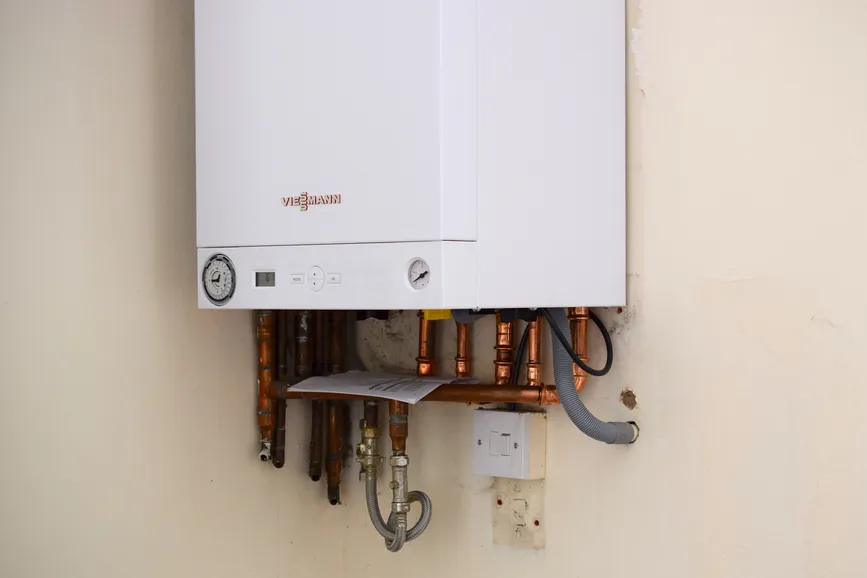
A dysfunctional boiler can lead to numerous inconveniences in your home, ranging from a lack of hot water, insufficiently heated water, to water leaks. These complications can be frustrating and make simple everyday activities, such as dishwashing or showering, uncomfortable or unfeasible. In this blog post, we'll explore some of the common boiler problems you might come across, their causes, and potential remedies.
Low water pressure
Low boiler pressure is a common issue that can significantly impact your heating system's efficiency and performance. Boiler pressure refers to the amount of pressure inside the boiler's system, which is essential for moving hot water through your pipes and radiators. When the pressure drops too low, it can result in insufficient heating, lukewarm radiators, or even complete boiler shutdowns. The causes of low boiler pressure can include a water leak somewhere in the system, recently bled radiators, or a failing pressure relief valve.
To address low boiler pressure, begin by checking the pressure gauge on your boiler, typically located on the front panel. Ideally, the pressure should read between 1 and 2 bars when the system is cold. If it's below this range, you can try re-pressurizing the system by following the manufacturer's instructions, usually involving opening a filling loop valve to let water in until the correct pressure is reached. However, if the pressure consistently drops or you suspect a leak, it’s essential to consult a professional technician who can accurately diagnose the issue, repair any leaks, and ensure the boiler operates safely and efficiently.
No hot water
Another frequent issue with boilers is the complete absence of hot water, which can be particularly vexing when you're anticipating a hot shower or warm water for cleaning chores. This problem can stem from various issues like a defective thermostat, a broken heating element, or a blown fuse or circuit breaker.
Should your boiler cease to produce hot water, begin by inspecting the circuit breaker or fuse box. If a tripped breaker or blown fuse is detected, reset it and allow a few minutes to see if your boiler starts generating hot water. If the breaker trips again, a more serious electrical issue may be present, necessitating a certified electrician's intervention.
If the circuit breaker or fuse isn't the root cause, the thermostat or heating element may be at fault. In such a case, it's advisable to get a professional plumber or HVAC technician to assess and rectify the problem. They can evaluate whether your thermostat needs replacing or if the heating element demands repair or substitution.
Insufficient hot water
Another common predicament with boilers is inadequate hot water. This situation arises when the boiler produces some hot water but not enough for your requirements. The issue may be attributed to several factors like an undersized boiler, a malfunctioning thermostat, or sediment accumulation in the tank.
If your boiler is small, a straightforward solution may be upgrading to a larger model. If, however, your boiler is of standard size, a faulty thermostat or heating element might be causing the problem. In this scenario, a professional technician can diagnose and determine whether repair or replacement is necessary.
Over time, water minerals can settle at the tank's bottom, forming a sediment layer that diminishes the hot water quantity. Regular tank flushing can help eradicate sediment accumulation and enhance your boiler's performance.
Leaking water
A boiler leak is a grave issue that can inflict substantial damage to your home if ignored. Leaks may originate from various problems such as a corroded tank, a defective pressure relief valve, or loose or damaged connections.
If you detect water accumulating around your boiler or a constant drip, it's crucial to respond promptly. Disconnect the power or gas supply to the unit and cut off the water supply. Immediately contact a professional plumber to diagnose and address the issue.
A common leak source is a corroded tank. Over time, the tank may rust or corrode, resulting in cracks or holes from which water can escape. Unfortunately, a corroded tank usually can't be fixed and requires replacement.
Leaks can also occur due to a malfunctioning pressure relief valve, designed to expel excess pressure to avert tank bursting. If this valve is defective, it might continuously discharge water, leading to a leak. In this case, valve replacement may be necessary.
Lastly, leaks can result from loose or damaged connections. Check the connections to and from the boiler to confirm they're secure and in good condition. If you spot any damage or corrosion, it's best to call a professional plumber to repair or replace the connections.
Know when to call a professional plumber
While many plumbing tasks can be handled independently, it's vital to recognise when professional help is needed. If you're uncertain about how to resolve a plumbing issue or if the situation surpasses your skill set, it's always preferable to call a plumber for assistance. Our expert plumbers are on standby to help with any problem. Give us a ring and we'll be right there.

![Logo for [object Object]](/images/logo/text.svg)